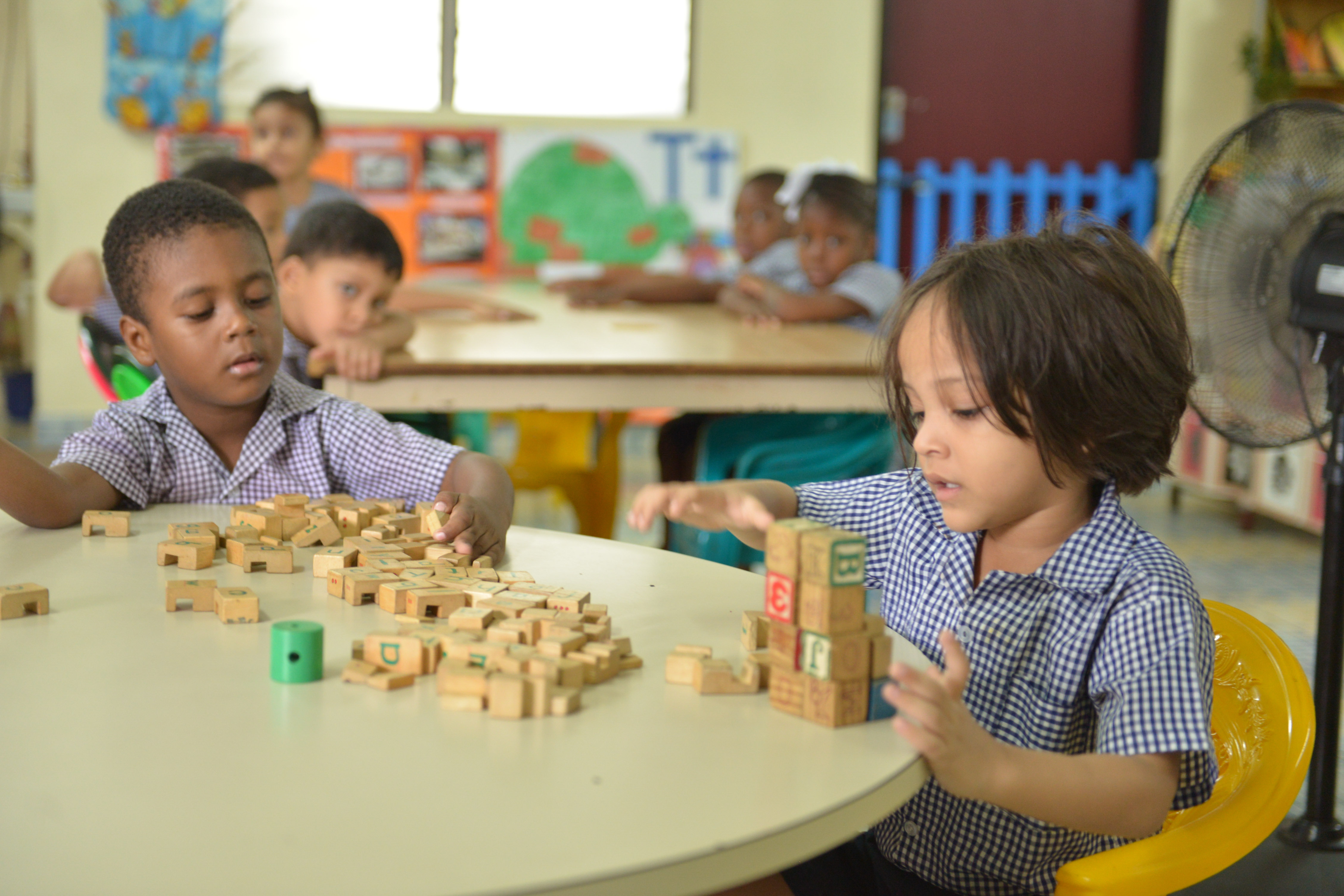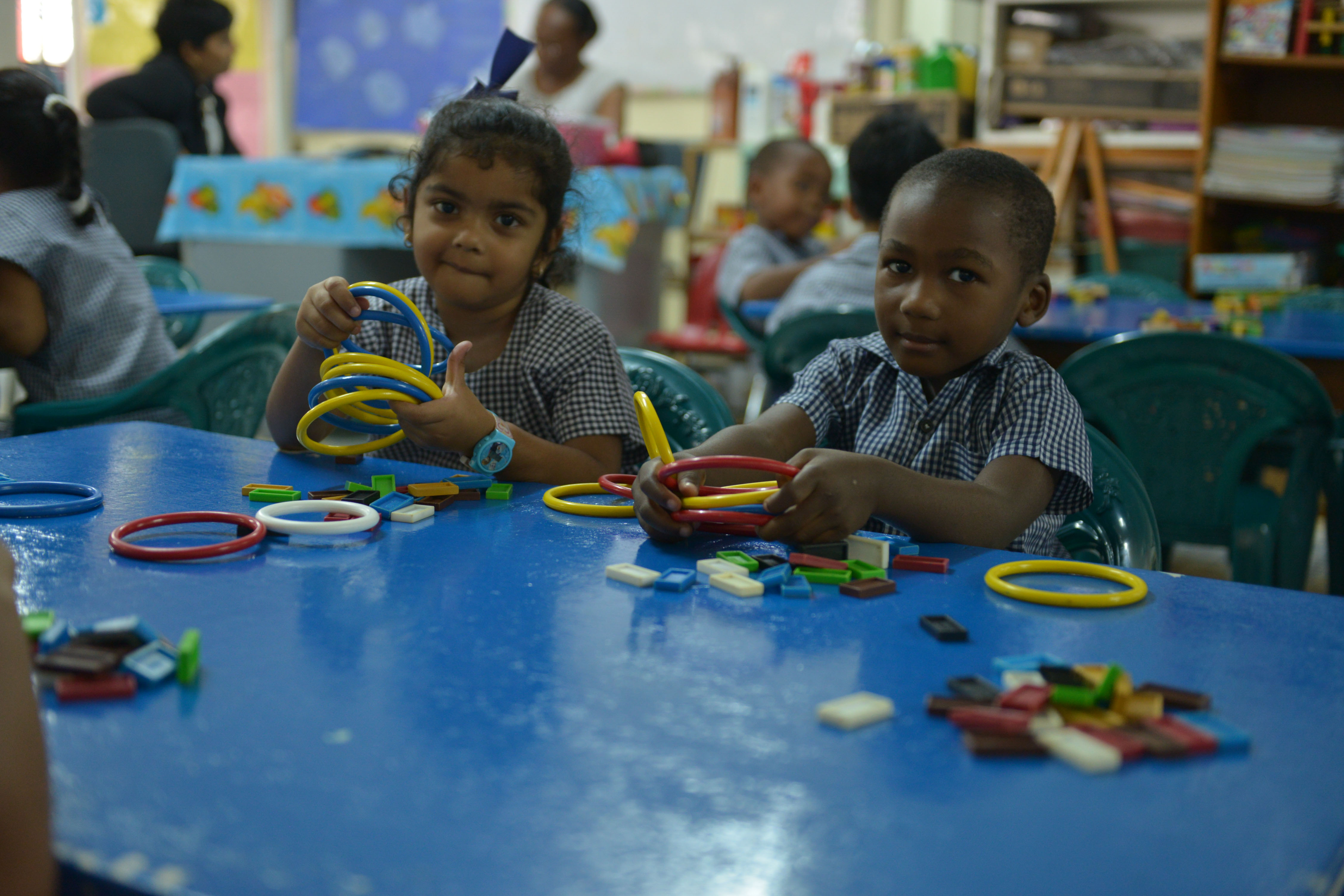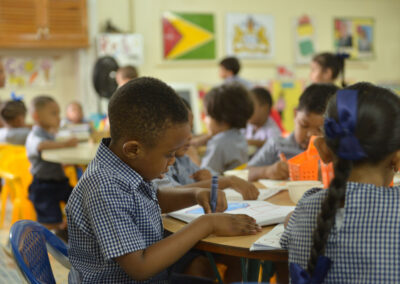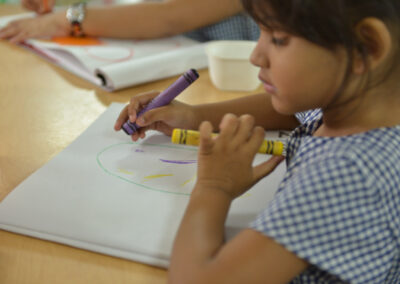Pre-kindergarten to Nursery
Our Nursery programme (Playschool – Nursery 2) is designed to nurture children’s physical, intellectual, emotional and social development. Learning is a life-long journey and we ignite this passion through allowing children to explore and discover new things daily while making connections with their surroundings. Our children are exposed to chess, robotics, life skills, gardening and basic gymnastics. The world becomes the classroom as each child’s natural curiosity is further fueled. Children leave ready and confident to begin their primary education.
To allow children to learn more holistically and to enable learning to be reinforced across many different linked areas, work is organised within Themes and Topics so that all six Areas of Learning are brought together cohesively. The themes and topics vary from year to year and on occasions are child-initiated but generally they are drawn from the list below which however is not exhaustive:
-
Ourselves
-
Homes
-
Places
-
Journeys
-
Seasons
-
Festivals
-
Weather
-
People Who Help Us
-
Food and Health
-
Animals and Plants
-
Materials
-
Light and Sound
Personal, social and emotional development is one of the most important aspects of early education. Children will be encouraged to become independent in their self-help skills; dressing, organisation and planning. They will be encouraged to take turns, share equipment, share their opinions and prepare their own snack. There will be opportunities in small groups and in circle time to discuss feelings, friendships and relationships.
Children in Pre-School follow a syllabus that is guided by the requirements of the Foundation Stage for Nursery Education. The Foundation Stage syllabus sets out six Areas of Learning covering children’s physical, intellectual, emotional and social development. Each of these areas includes several aspects of learning which are listed below:
Personal Social and Emotional Development
- Dispositions and attitudes
- Self-confidence and self-esteem
- Behaviour and self-control
- Making relationships
- Self-care
- Sense of community
Communication, Language and Literacy
- Language of communication
- Language of thinking
- Linking sounds and letters
- Reading
- Writing
- Handwriting
Mathematical Development
- Sorting, matching and comparing
- Shape and space
- Knowledge and understanding of the world
- Number
- Counting
- Patters
Exploration and Investigation
- Designing and making skills
- Information and communication technology
- A sense of time
- A sense of place
- Cultures and beliefs
Physical Development
- Movement
- A sense of space
- Health and bodily awareness
- Using equipment
- Using tools and materials
Creative Development
- Exploring media and materials
- Responding to experiences and expressing and communicating ideas
- Music
- Imagination / Role play




